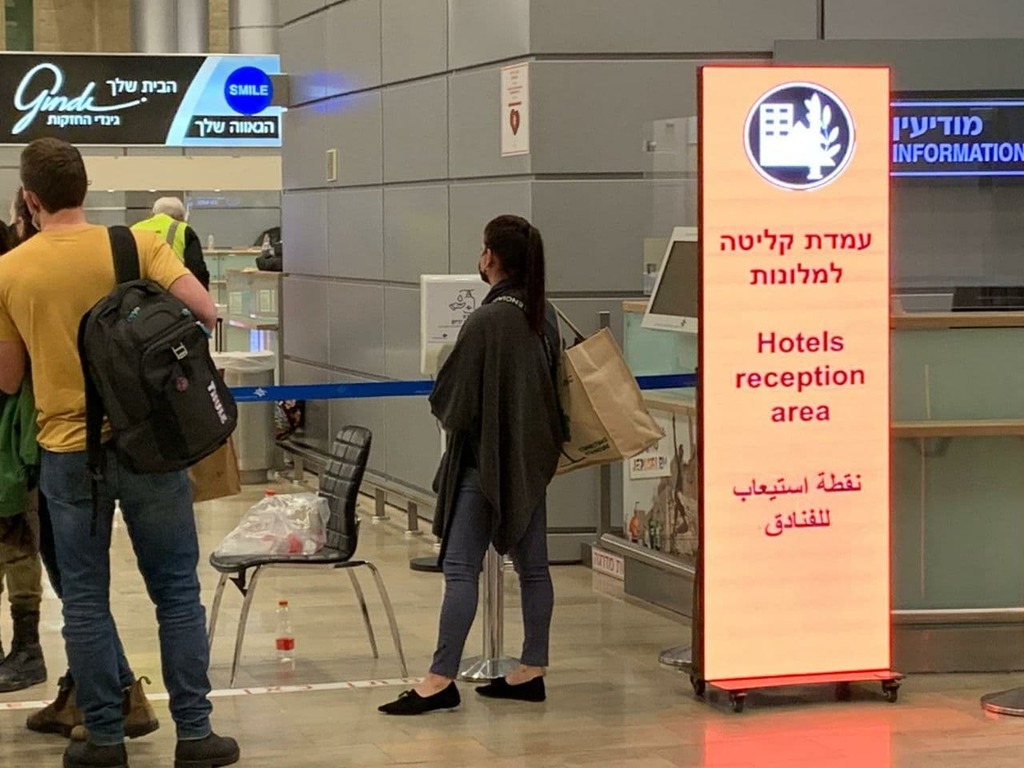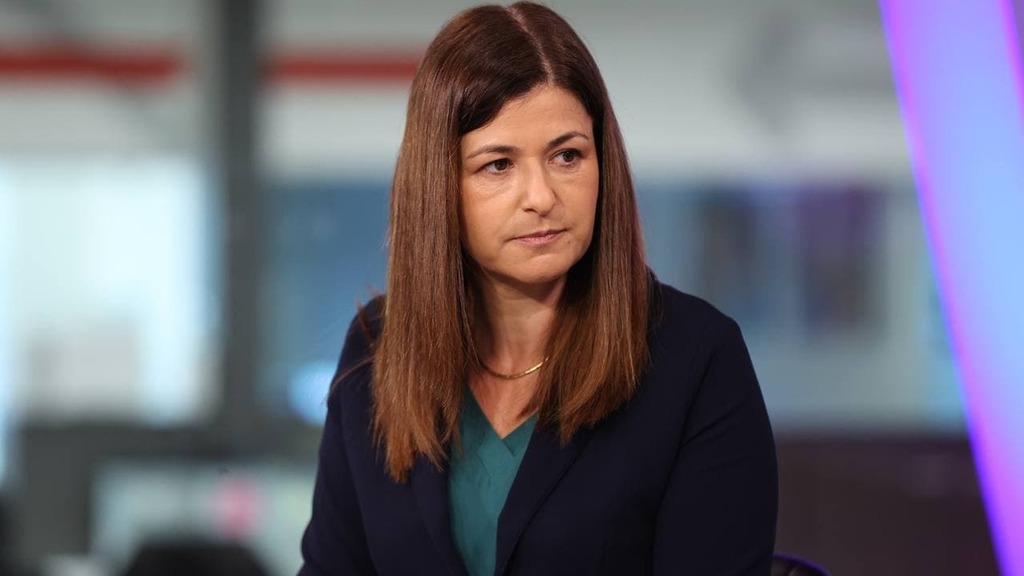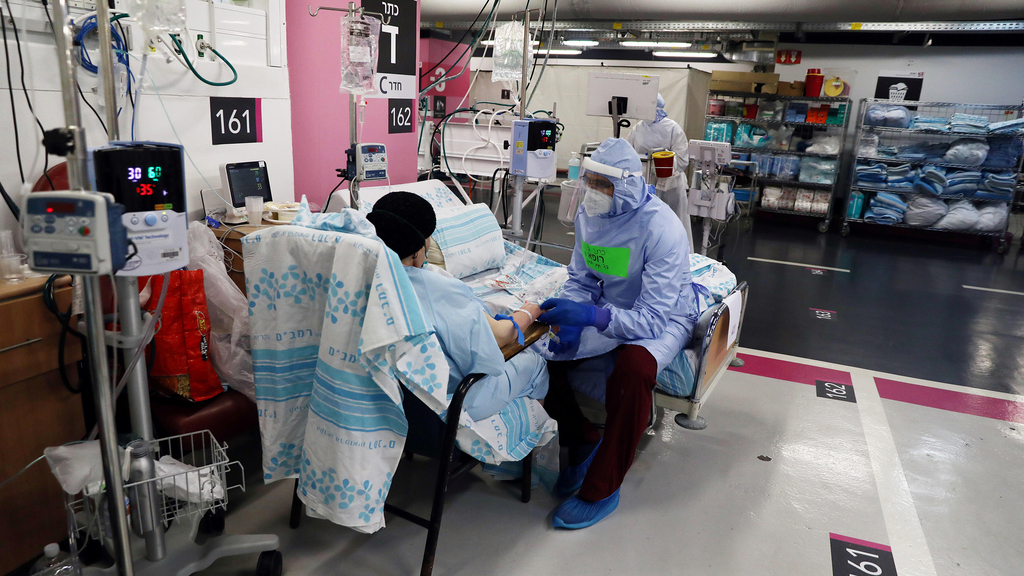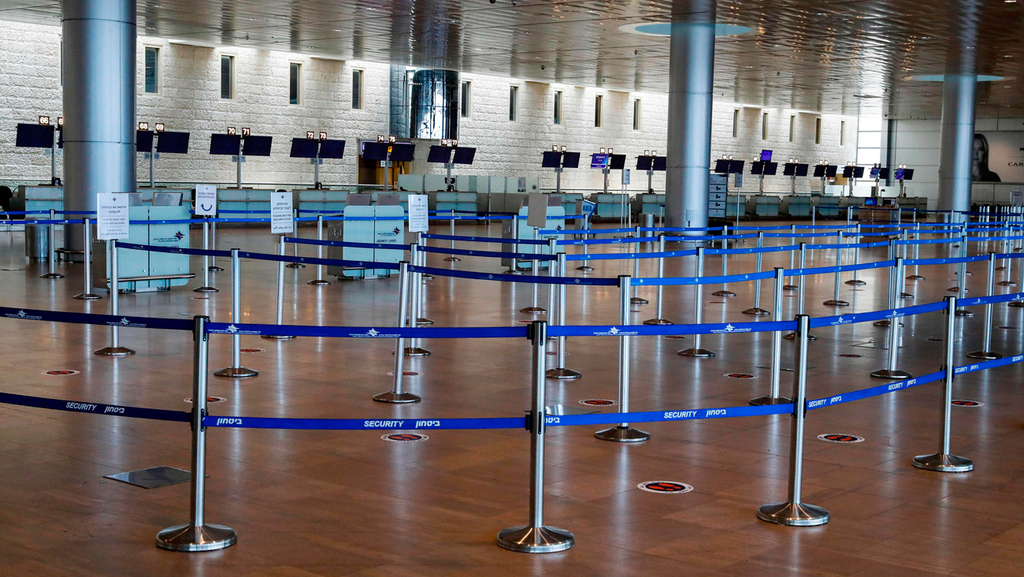Israel will require a negative COVID test for anyone wishing to enter the country, mandatory isolation for returning nationals will be expanded to include more countries and international travel will be restricted under new steps approved in principle at an emergency debate called by Prime Minister Benjamin Netanyahu over the spread of mutated strains of the coronavirus.
The discussion was also attended by Health Minister Yuli Edelstein, Transportation Minister Miri Regev, National Security Council Advisor Meir Ben-Shabbat, Attorney General Avichai Mandelblit and Health Ministry Director General Prof. Hezi Levi.
5 View gallery


Israelis who returned from Dubai wait at Ben-Gurion Airport for transportation to a government-run isolation center
(Photo: Gabi Zohar)
The decision in principle was then being prepared for approval by the government, which was to convene Tuesday on the issue.
Meanwhile, Dr. Orly Greenfeld, the medical director at Israel's national program to combat the coronavirus, said Monday that she recommends completely shuttering Ben-Gurion Airport for a short time in order to prevent the entry of the South African variant and others into Israel.
The Health Ministry has said that 20 people have tested positive for the South African strain, while dozens of cases of the new British variant were also recorded. Both are believed to be more infectious than previous variants of the virus.
5 View gallery


Dr. Orly Greenfeld, the medical director at Israel's national program to combat the coronavirus
(Photo: Hadar Yoavian)
"In terms of health, it would have been better to close Ben-Gurion Airport," Greenfeld said.
"The more people stay put, the less chances any new variants of the virus will make their way into Israel.
But, she conceded, such a step "has consequences."
Greenfeld’s comments came after Edelstein asked the ministry’s legal adviser examine the option of closing the skies in order to reduce the number of people entering from abroad.
"This is something we must do as soon as possible in order to stop [the spread of the South African variant],” said Greenfeld. “The British variant is already here, apparently 20% of all verified cases are due to the British variant.”
Greenfeld added: “There are currently 20 patients who were found afflicted with the South African variant. In the last two days we discovered that several of them have recently returned from Dubai. This has led us to decide that all those returning from UAE and Brazil will be taken to isolation in a hotel, which was implemented very quickly.”
She said that the only way for Israel to escape the pandemic was through vaccination, and urged unvaccinated Israelis to join the more than two million compatriots who have already been inoculated as soon as possible.
“In the end, the only way out of the crisis is through vaccination. That is why we always tell the public to go out and get vaccinated and to adhere to the restrictions as much as possible,” Greenfeld said.
“We are in the middle of a competition [with the virus]. We will only win through inoculation and with the restrictions, otherwise this tsunami of infections will never stop.”
5 View gallery


The underground coronavirus ward at Rambam Healthcare Campus in Haifa
(Photo: Reuters)
The move to test everyone entering the country was backed Sunday by Prof. Eran Segal of the Weizmann Institute, who also advises the government on the pandemic.
According to Segal, the fact that Israel essentially has just one main port of entry means that demanding a negative coronavirus test of everyone arriving and more effective enforcement of quarantine in government-run hotels would have yielded better results and kept contagion down.
"Had these measures been taken earlier we would have today seen the spread of the virus contained," he said.
Edelstein has also been reviewing the best ways to reduce the departures and entries to Israel.
"It is clear to us that we cannot bring down the number of flights to zero, because there are always humanitarian cases and foreign diplomats. But the idea is to test what most reduces exits and entries [into the country]," Edelstein said.
"We are proud of our vaccination campaign, but at the same time we now have a mutation whose infection rate is twice what we are used to. At that rate we will have 10,000 daily new cases. The last cases of the mutation from South Africa were not seen in South Africa, but were in Dubai,” he said.
Edelstein also said he intends to ask the coronavirus cabinet to extend Israel’s stringent closure, which was supposed to last at least two weeks and expires Thursday, by an additional seven days in order to avoid entering a fourth closure in less than a month.
"We have been at 9,000 new daily cases for several days in a row, while the contagion rate ranges between 8-9%. I hope that within two or three days we will see a decline,” said the health minister.
“And while there is a decline in the virus’ R value (the number of people that one infected person will potentially pass the virus onto) the numbers have reached a peak just as I warned. It will take a long time to bring them down.”



